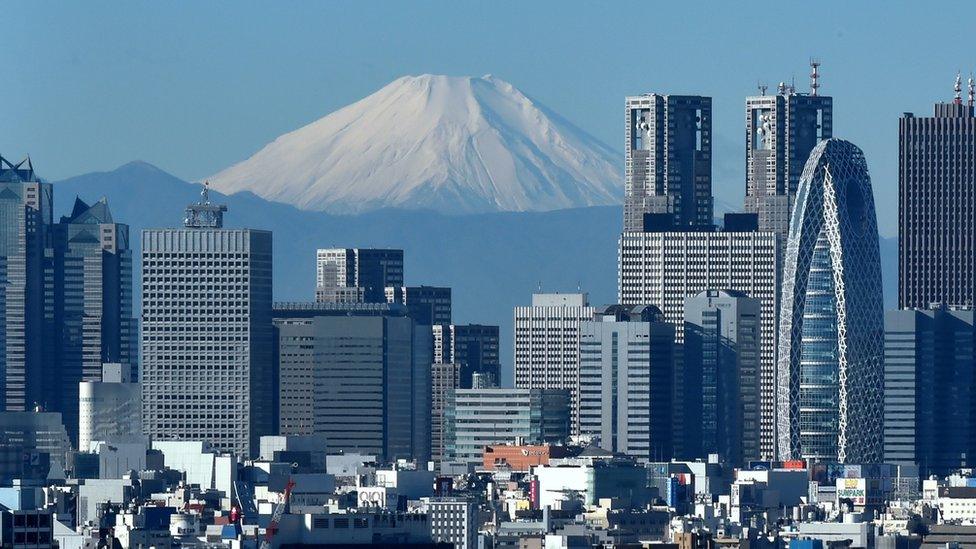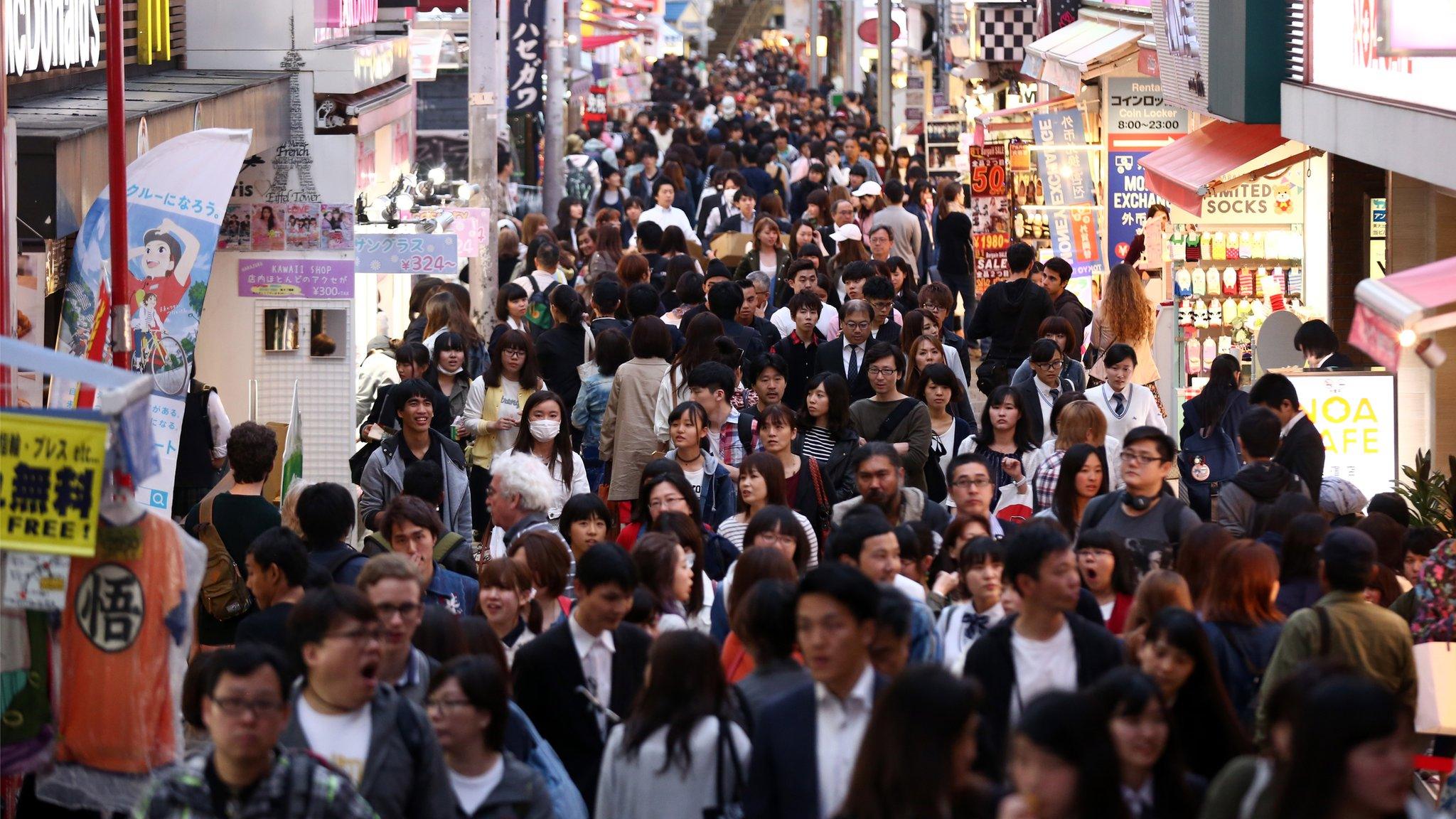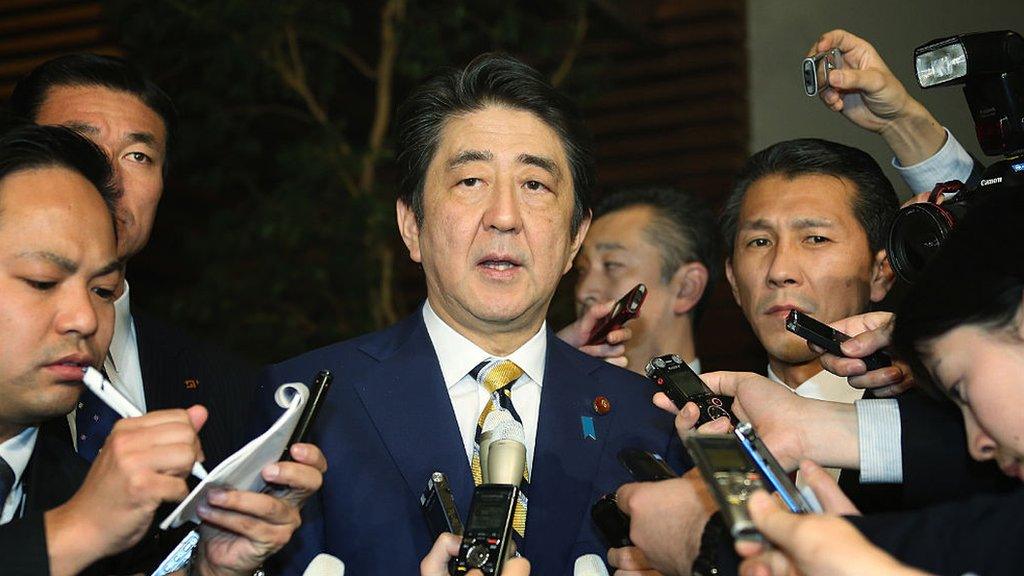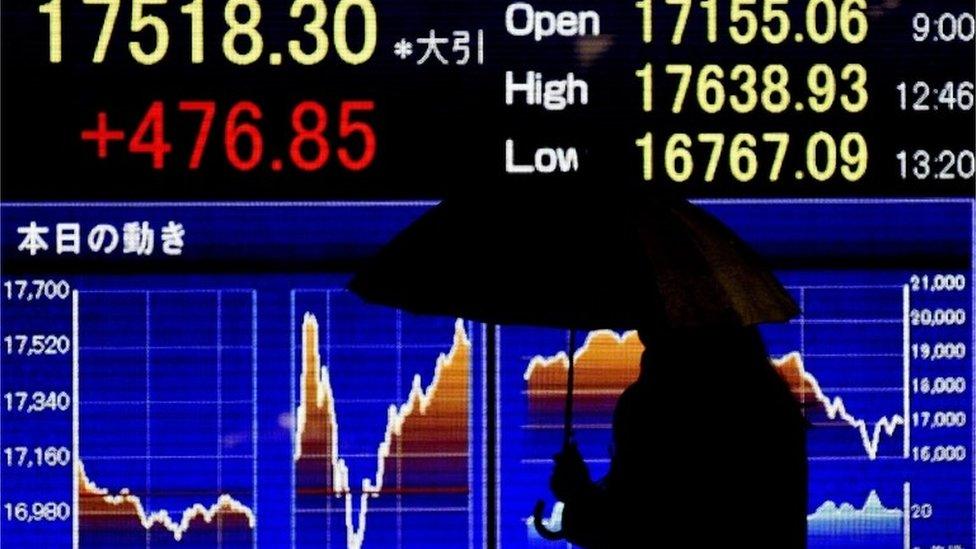Japanese economy avoids recession
- Published

Japan's economy has dodged a recession after it grew faster than expected in the first three months of the year.
Gross domestic product in the world's third-largest economy grew at an annualised pace of 1.7%.
The better-than-expected growth rate came after higher government spending helped to offset weakness in business investment and exports.
It marks a rebound from the previous quarter but is not thought to lessen the pressure for more economic reform.
Japan's economy had shrunk in the final three months of 2015, so the expansion in the first quarter meant it avoided falling into recession - usually defined as two successive quarters of contraction.
The past four quarters have been volatile, alternating between growth and contraction.
In January, the Bank of Japan introduced negative interest rates in an attempt to stimulate the economy.
"One of the lessons over the past year is that monetary policy isn't as effective as it was in the past and might have reached some limits," Martin Schulz from Fujitsu Research Institute told the BBC.
"So what we will probably see this year is that the Bank of Japan will keep buying government bonds and the government will probably start to spend even more than it did before to support the economy."
Analysts remain concerned about the outlook for consumer spending, which accounts for about 60% of economic growth.
The surprisingly strong economic growth between January to March was partly attributed to an extra day because of 2017 being a leap year.
Sales tax delay?
There are fears that consumer spending could take a hit if Prime Minister Shinzo Abe moves to increase the country's sales tax to 10% from the current 8%.
Japan's Nikkei newspaper reported this week that Mr Abe plans to postpone the move and will announce his decision after the G7 meeting later this month.
The country's government has for years been desperate to boost its stagnating economy and push consumer spending.
Tokyo's reform package - dubbed Abenomics - kicked off in 2012 but has so far failed to spur economic growth in the way its supporters had hoped for.

The three arrows: explaining Abenomics
Japanese Prime Minister Shinzo Abe's economic policy, which quickly became known as "Abenomics" is based on three arrows:
The monetary arrow: expansion of the money supply to combat deflation
The fiscal arrow: increased government spending to stimulate demand in the economy
The structural arrow: structural reforms to make the economy more productive and competitive

- Published18 May 2016

- Published15 February 2016

- Published29 January 2016
